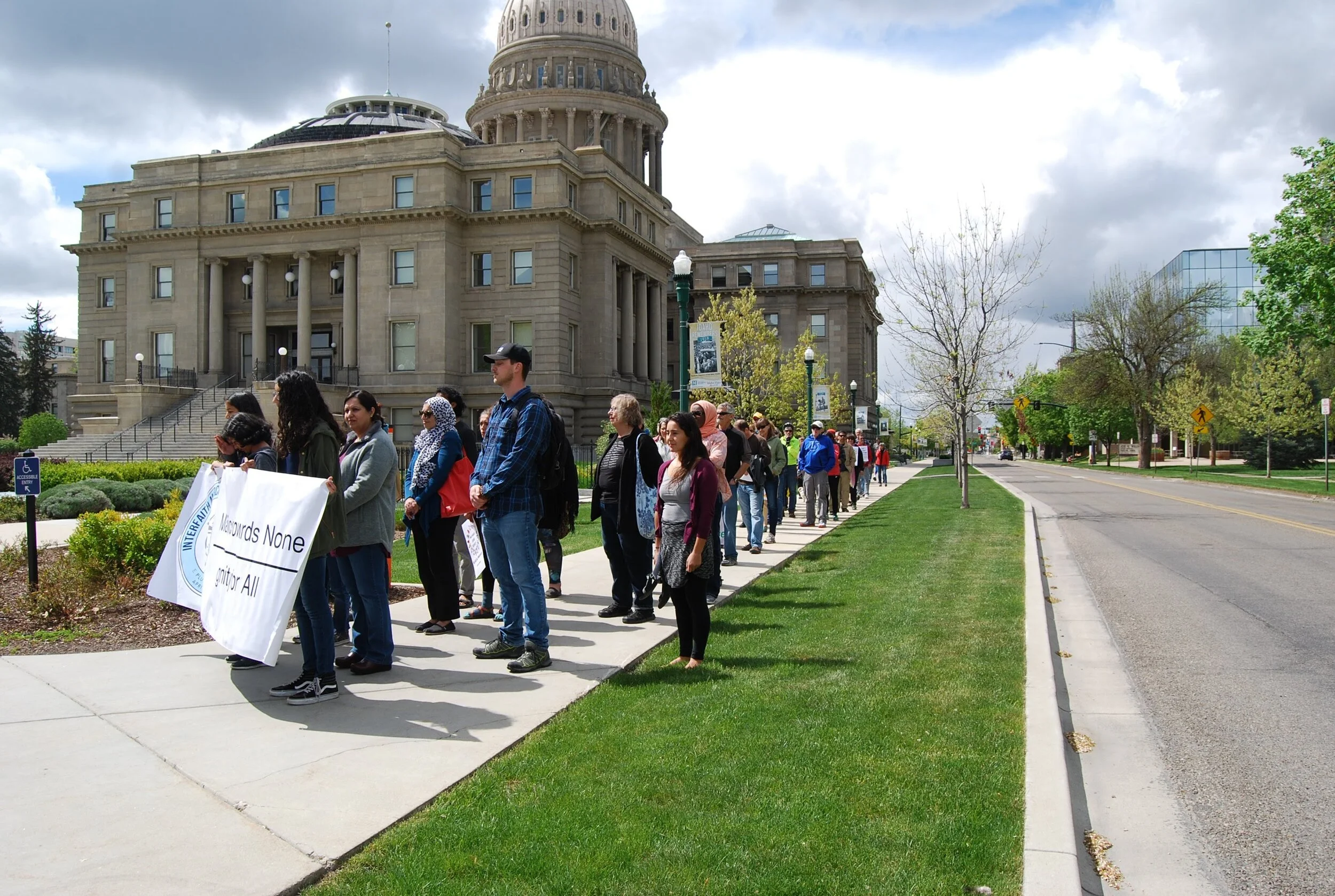Peacemaking in Pakistan: Promoting Religious Freedom
by Rick Love
I just spent five days in Washington, D.C. working on global peacemaking issues. A highlight was meeting with the leaders of the International Center for Religion and Diplomacy to work on a peacemaking effort in Pakistan.
James Patton (on the left) is the Executive Vice President, Douglas Johnston (on the right) is the founder and President of ICRD.
Douglas Johnston, the founder and President of ICRD has a long history of working in Pakistan. Here’s how he describes ICRD’s work in Pakistan: “For the past eight years, we have been working with leaders of the religious schools (madrasas) to expand their curriculums to include the physical and social sciences, with a strong emphasis on religious tolerance and human rights, and to transform their pedagogy to promote critical thinking skills among students. To date, we have engaged some 2,700 madrasa leaders from 1,611 madrasas, most of them located in the more radical areas of the country” (Evangelical Peacemakers: Gospel Engagement in a War-Torn World, p 56).
A few months ago, Doug called and asked if Peace Catalyst wanted to partner with ICRD. He asked me to recruit evangelical leaders who would meet with high-level Muslim leaders from Pakistan to dialogue about religious freedom. We have a two-point agenda: (1) to address the persecution of minorities in Pakistan, many of whom are Christians, and (2) to address the problem of Islamophobia in the U.S.
Why is this peacemaking effort so important?
Pakistan is one of the largest Muslim countries in the world, second only to Indonesia, and a well-known haven for terrorists, including Al Qaeda. It also has a stockpile of over 100 nuclear weapons, positioning Pakistan to be either a deterrent to or a supplier of terrorism. Global security depends on Pakistan's response to peacemaking efforts such as those carried out by the ICRD and its Muslim counterparts. This makes Pakistan a hugely important country for people concerned about peace and national security.
You have probably heard about the persecution of Christians in Pakistan. Two suicide bombers recently attacked a Christian church in northwest Pakistan, killing more than 80 people and leaving over 140 others injured. But there are also signs of hope and change in Pakistan. A recent report also tells of Muslims protecting a Christian church.
In January, I will join fifteen other Muslims and Christians to build relationships and discuss ways we can promote religious freedom in our respective countries. This kind of gathering describes what is referred to as “track-two diplomacy,” when non-government leaders meet to engage in dialogue and work on resolving conflict.
Religious freedom brings peace to persecuted religious minorities, such as Christians and Shia Muslims in Pakistan and Muslims in the U.S. What most people don’t realize is that promoting and protecting religious freedom actually undermines terrorism and enhances national security. This is a major theme in the teaching of Thomas Farr.
Christians and Muslims, those of other religions, and those with no religion: will you join me in promoting and protecting religious freedom for all? This is a hugely important part of peacemaking in the 21st century!











